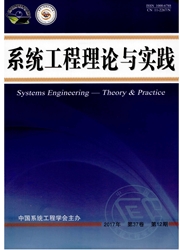

 中文摘要:
中文摘要:
准确的旅游预测对于旅游政策制定当局和游客都具有重要意义,可以帮助资源的合理配置并避免拥堵事件和游客滞留事件的发生.为了提高旅游预测的准确性,本文考虑噪声在预测中的干扰,提出一种基于网络搜索的CLSI-EMD—BP预测模型.该模型首先利用CLSI方法对网络搜索数据进行指数合成,并利用EMD对序列进行噪声处理,将高频噪声从原序列中分离,再利用去噪处理后的网络搜索数据对旅游客流量进行预测.实证分析以九寨沟为例对预测期内未来22周旅游客流量进行预测发现,基于网络搜索的CLSI—EMD—BP预测误差显著低于时间序列、网络搜索和BP神经网络三个基准模型.该结论一方面说明了本文预测模型的改进作用,另一方面也表明了噪声处理在预测中的必要性.
 英文摘要:
英文摘要:
Predicting tourism traffic accurately plays an important role in making policies for tourist administration. It helps to distribute the resources reasonably and avoid the tourism congestions. To improve the tourism prediction accuracy, this study considered the noise interference and proposed a forecast model of CLSI-EMD-BP using web search data. This model firstly applied CLSI to combine the web search data into a search index, then it denoised the series with EMD. EMD extracted the high frequency noise from the original series. The low frequency series of search index would be used to predict the low frequency tourism series. Taking Jiuzhaigou as an example~ this study trained the model and predicted the next 22 weeks tourism arrivals. The conclusion demonstrated that the forecast error of CLSI-EMD-BP model is lower remarkably than the baselines of time series model, the web search data model and the BP network model. This revealed that nosing processing is necessary as well as CLSI-EMD- BP forecast model cau improve the prediction accuracy.
 同期刊论文项目
同期刊论文项目
 同项目期刊论文
同项目期刊论文
 期刊信息
期刊信息
